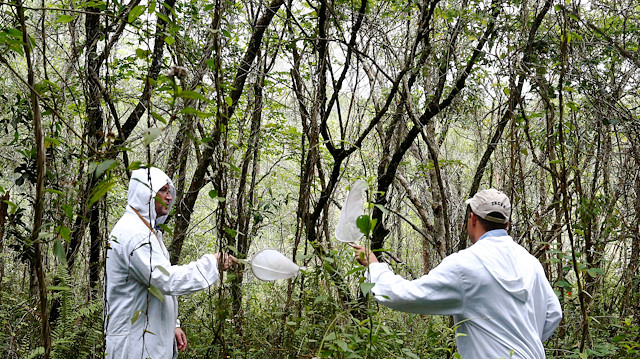
"GUINEA PIGS"
Activists in Burkina fear unintended environmental consequences.
They point to Burkina's experiment with genetically-modified cotton a few years ago, which farmers said had lowered quality and was ultimately abandoned in favour of conventional seeds.
"We are not going to allow Burkinabes to be used as guinea pigs," said Ali Tapsoba, a Burkinabe activist.
"If we intoxicate one link in the food chain, we are going to intoxicate the next link."
Those concerns echo beyond Burkina. Last November, signatories of a United Nations convention on biodiversity noted "uncertainties regarding engineered gene drives".
Critics of gene drives fear they could be used to manipulate human genetics, or develop a bio-weapon.
Researchers in Brazil have also released genetically modified mosquitoes in an attempt to control diseases like yellow fever and Zika, but it is not clear how effective that has been.
Target Malaria says it consults with communities and that research is overseen by national regulatory authorities and an independent ethics committee.
Two months after the mosquitoes were released, Souroukoudinga chief Pascal Traore told Reuters villagers were happy with the experiment's progress.
"We all believe that the project could reduce the malaria that kills our sons and daughters," he said. "This project is not just for us, but for the entire world."














